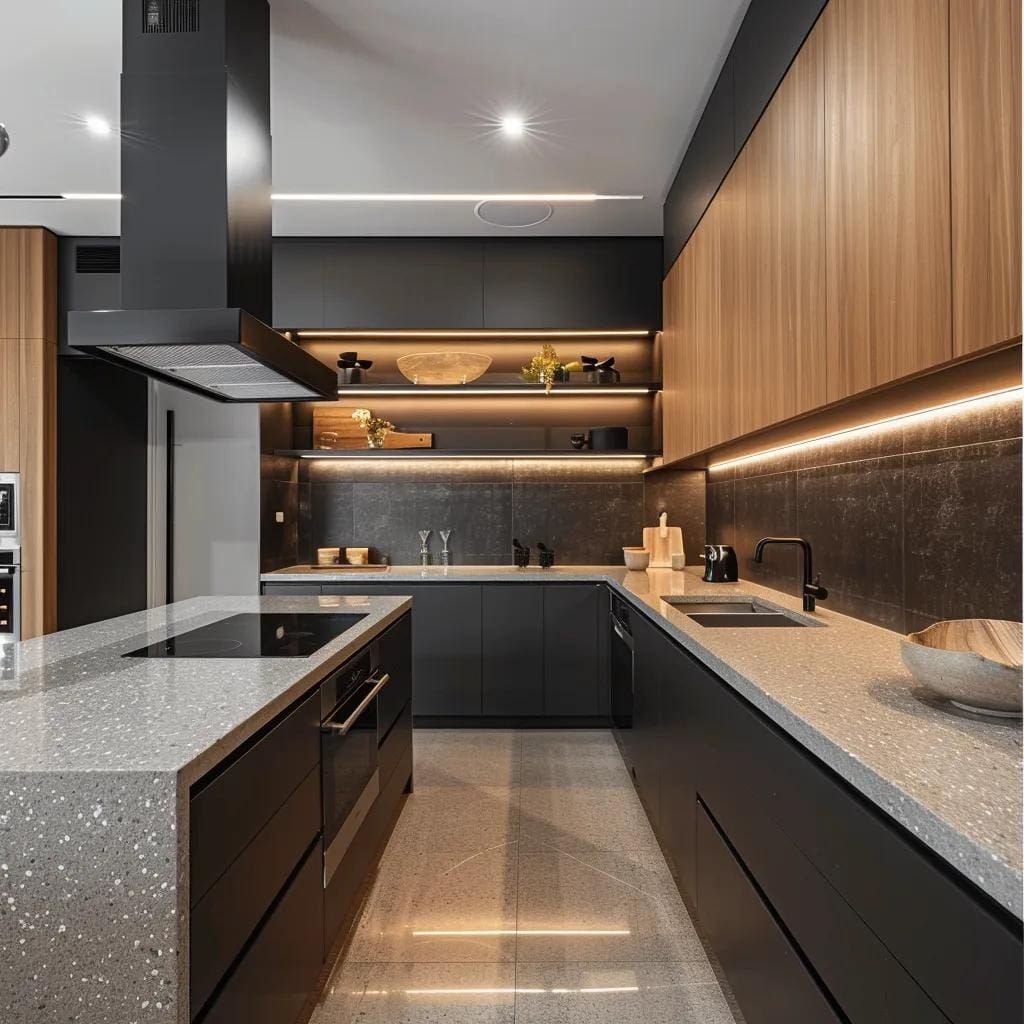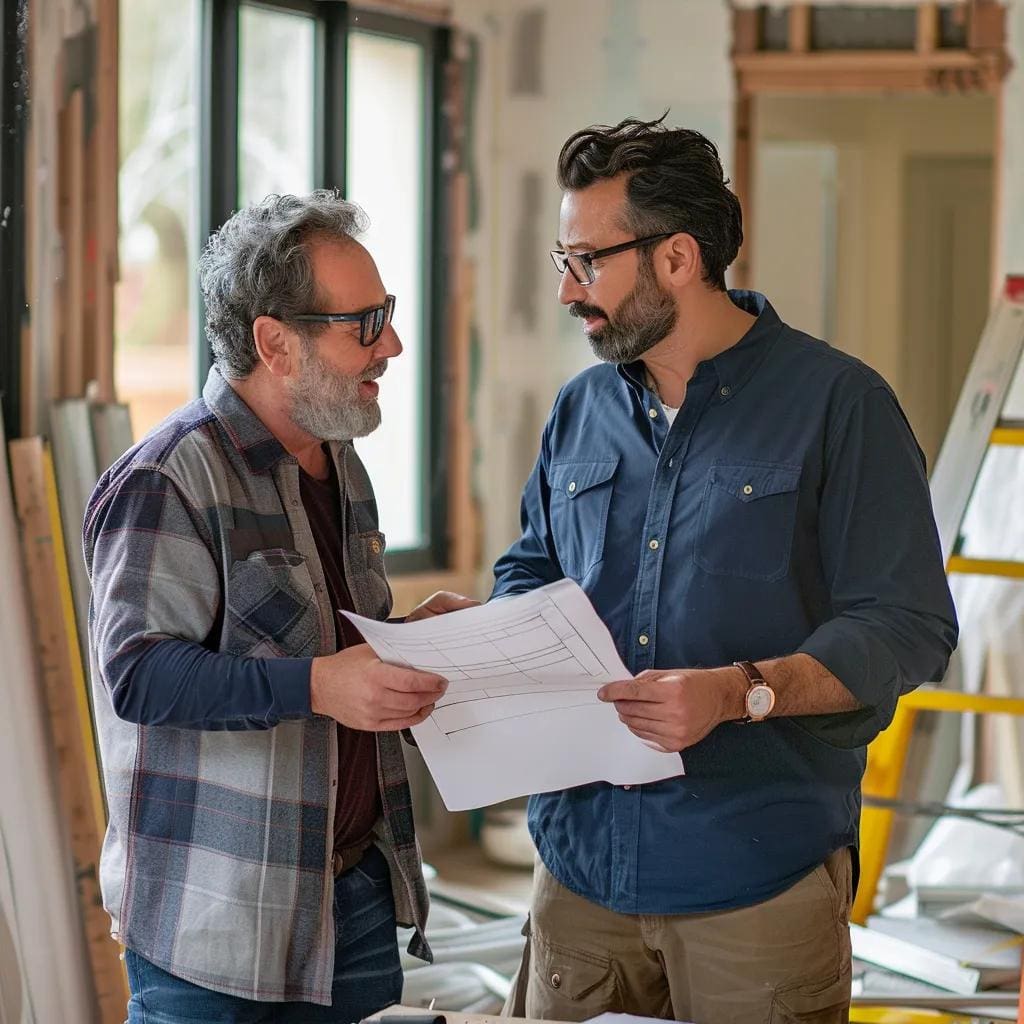How to Budget for Renovations Cardiff First-Time Buyers Can Afford

Renovation budgets for first-time buyers in Cardiff often start around £850 per square metre, making it essential to plan carefully before committing to improvements. This guide reveals how to estimate average project costs, explore financing options, maximise return on investment, find reputable contractors, analyse market trends, build a step-by-step budget plan and navigate local permissions. By following structured cost breakdowns, comparing loans and grants, and implementing proven strategies, first-time buyers can transform a Cardiff property affordably and confidently.
What Are the Average Renovation Costs in Cardiff for First-Time Buyers?
Average renovation costs in Cardiff define the baseline for any budget and help first‐time buyers avoid unexpected expenses. Renovation Budget includes Estimated Costs that vary by project type, so understanding local rates—from general refurbishments to bespoke upgrades—supports accurate planning. For instance, basic flat refurbishments can cost around £16,500 while full house renovations may exceed £100,000 depending on scope.
Average Renovation Costs in Cardiff
Renovation costs in Cardiff vary significantly based on project type, with basic flat refurbishments potentially costing around £16,500, while full house renovations can exceed £100,000. These figures highlight the importance of detailed planning and understanding local market rates to avoid unexpected expenses.
This source provides a general overview of renovation costs, which supports the article’s discussion of average expenses in Cardiff.
Which Factors Affect Renovation Costs in Cardiff?
Renovation costs in Cardiff fluctuate according to key variables that buyers must track before setting a budget:
- Property age and condition determine structural work and repair needs.
- Type of materials—standard or premium—affects supply costs.
- Labour rates vary by trade and project complexity across Cardiff postcode areas.
- Project scale—square metre coverage—influences overall expense and duration.
These factors interact to shape the final invoice, guiding first-time buyers to prioritise essential work and select appropriate finishes as they move into detailed cost estimation.
What Are Typical Costs for Kitchen and Bathroom Renovations in Cardiff?

Kitchen and bathroom projects often deliver the greatest value yet consume a large portion of a renovation budget. Below is a cost overview for common projects in Cardiff:
| Renovation Type | Attribute | Value |
|---|---|---|
| Kitchen unit installation | Average Cost | £6,200–£20,000 |
| Full bespoke kitchen fit | Average Cost | £20,000–£50,000 |
| Standard bathroom upgrade | Average Cost | £4,500–£12,000 |
| Ensuite installation | Average Cost | £3,500–£8,000 |
These figures reflect typical scopes—from unit replacement to complete redesign—helping first‐time buyers allocate funds wisely and compare quotes effectively before proceeding to loft and extension budgets.
How Much Do Loft Conversions and House Extensions Cost in Cardiff?
Loft conversions and house extensions can add substantial living space and value. On average, loft projects in Cardiff range from £25,000 to £45,000 for a basic conversion and up to £60,000 for high‐spec designs. Single‐storey rear extensions typically cost between £30,000 and £60,000 depending on footprint and structural work. Buyers should factor in planning, party wall agreements and design fees to their average renovation costs in Cardiff.
What Are Common Additional Renovation Costs to Budget For?
Beyond major rooms and expansions, several ancillary expenses often arise:
- Electrical rewiring or consumer unit upgrades (£3,000–£6,000)
- Wall replastering or skim coat (£1,500–£4,000)
- Damp proofing and timber treatment (£1,200–£3,500)
- New flooring and skirting (£2,000–£7,000)
Allocating a realistic sum for these elements prevents budget overruns and ensures readiness for hidden repair needs as work unfolds.
How Can First-Time Buyers Plan a Contingency Fund for Unexpected Expenses?
Creating a contingency fund mitigates risk when Renovation Budget includes unknowns such as structural surprises or design changes. First‐time buyers should:
- Set aside 15–20 percent of total projected costs.
- Keep funds accessible in a savings account or as part of an emergency credit line.
- Review and adjust the contingency as quotes firm up and project scope evolves.
A well‐planned reserve supports smoother progress and lessens the impact of unforeseen issues on overall affordability.
What Financing Options Are Available for First-Time Buyer Renovations in Cardiff?
Exploring the right financing solution transforms renovation aspirations into actionable projects. First-Time Buyer Renovations can be funded through loans, mortgages with added costs, council schemes and grants that match personal circumstances and project size.
Which Home Improvement Loans Can First-Time Buyers Access in the UK?
Home improvement loans offer unsecured or secured borrowing tailored to renovation costs. Key options include:
| Loan Type | Attribute | Value |
|---|---|---|
| Personal Loan | Interest Rate | 4%–12% APR |
| Secured Loan | Borrowing Limit | Up to 100 percent equity |
| Unsecured Bridging Loan | Repayment Term | 6 months to 2 years |
Financing Options for Home Improvements
Home improvement loans offer various options, including personal loans with interest rates typically between 4% and 12% APR, and secured loans that can borrow up to 100% of the property’s equity. These options provide flexibility for first-time buyers to finance their renovation projects.
This citation supports the article’s discussion of different financing options available to first-time buyers in Cardiff.
How Do Renovation Mortgages Work for First-Time Buyers in Cardiff?
Renovation mortgages add improvement costs to the main borrowing amount, enabling buyers to finance both purchase and upgrade in one arrangement. Lenders release funds in stages tied to work completion, reducing upfront cash needs. Eligibility depends on deposit size, credit history and the value-added estimate following structural improvements.
What Is the Cardiff Council Houses into Homes Loan and Who Qualifies?
The Cardiff Council Houses into Homes Loan is an interest-free scheme offering up to £25,000 per property to bring long-term empty properties back into use. First-time buyers qualify if they purchase a unit vacant for at least six months and commit to owner-occupation for five years, promoting urban regeneration alongside personal affordability.
Are There Other Government Grants or Shared Equity Schemes for Renovations in Wales?
First-time buyers in Cardiff can also explore:
- Help to Buy Wales Shared Equity Loan
- Home Upgrade Grant for energy efficiency improvements
- Local Authority discretionary renovation grants
How Can First-Time Buyers Compare Financing Options for Renovations?
Comparing loan and grant offers requires evaluating:
- Interest rates and APRs over the term.
- Repayment schedules and flexibility.
- Arrangement fees, early repayment penalties and eligibility criteria.
- Impact on deposit requirements and mortgage approval.
Spreadsheeting these factors side by side empowers informed decision-making and maximises cost efficiency.
Which Renovations Offer the Best Return on Investment (ROI) for First-Time Buyers in Cardiff?
Focusing on high-ROI projects lets buyers enhance both living conditions and resale value. Renovation Types that increase curb appeal and functional space tend to yield the strongest returns.
How Do Kitchen and Bathroom Renovations Increase Property Value in Cardiff?
Kitchen and bathroom upgrades improve quality of life and capture buyer interest. A mid-range kitchen refit can boost property value by 5–10 percent, while a high-quality bathroom renovation often adds 3–7 percent. These rooms demonstrate tangible benefits through modern fixtures, improved layouts and energy‐efficient appliances.
Return on Investment for Kitchen and Bathroom Renovations
Kitchen and bathroom renovations often provide a strong return on investment, with mid-range kitchen refits potentially increasing property value by 5-10%, and high-quality bathroom renovations adding 3-7%. These improvements are attractive to buyers and can significantly boost a property’s market value.
This source provides data on the potential return on investment for specific home improvements, which aligns with the article’s discussion of maximizing property value.
What Is the ROI of Loft Conversions and Open-Plan Living Spaces?
Loft conversions frequently add up to 20 percent in value by creating extra bedrooms. Open‐plan layouts appeal to contemporary buyers, with typical value uplifts of 8–12 percent. Prioritising structural changes that optimise space supports long-term equity growth for first-time investors.
How Can Energy Efficiency Upgrades Benefit First-Time Buyers?
Energy efficiency projects reduce running costs and enhance appeal. Key upgrades include:
- Loft insulation to improve thermal performance.
- Double or triple glazing for reduced heat loss.
- Air-source heat pumps to replace fossil fuel systems.
What Affordable Renovation Ideas Can Help First-Time Buyers Maximise Budget?
Cost-effective strategies allow impactful change on a limited spend:
- Repainting walls in neutral tones to refresh interiors.
- Refurbishing existing kitchen units with new doors and handles.
- Installing energy-efficient LED lighting throughout.
- Adding fitted storage solutions for organised living.
How Can First-Time Buyers Find and Vet Reliable Renovation Contractors in Cardiff?

Selecting trustworthy tradespeople ensures quality outcomes and on-budget delivery. A structured vetting process minimises risk and builds confidence before work begins.
Where to Find Qualified Local Tradespeople and Renovation Companies in Cardiff?
First-time buyers can locate professionals via:
- Accredited trade directories (e.g., local building federation lists).
- Recommendations from estate agents and surveyors.
- Cardiff Council’s approved contractor registers.
- Online platforms with verified reviews.
What Questions Should Buyers Ask When Getting Renovation Quotes?
When comparing quotes, ask:
- Are detailed itemised costs provided for labour and materials?
- What guarantees or warranties accompany the work?
- How will project timelines and payment schedules be structured?
- Who manages subcontractors and site safety protocols?
Clear answers establish expectations and support contractual clarity.
How to Check Credentials and Reviews of Cardiff Contractors?
Verifying credentials involves:
- Confirming public liability and professional indemnity insurance.
- Checking memberships in trade bodies (e.g., Federation of Master Builders).
- Reviewing testimonials on independent review sites.
- Requesting examples of recent Cardiff projects and client references.
Due diligence builds trust and promotes accountability throughout the renovation.
What Are the Current Trends and Prices in the Cardiff Property Market for First-Time Buyers?
Cardiff’s property market shapes renovation budgets by influencing purchase price, local rates and buyer expectations. Staying aware of recent data helps allocate funds effectively.
What Is the Average Property Price for First-Time Buyers in Cardiff?
As of mid-2024, first-time buyer transactions in Cardiff averaged £134,600, with city-wide prices nearing £289,000. Lower entry‐level prices reflect smaller units and less central locations.
Which Areas in Cardiff Are Most Affordable for First-Time Buyers?
For budget-conscious buyers, consider:
- Riverside and Splott for flats under £150,000.
- Tremorfa and Ely for terraced houses around £160,000.
- Llanedeyrn and Rumney for refreshed semi-detached homes near £180,000.
How Do Cardiff Property Market Trends Affect Renovation Budgets?
Rising values in popular suburbs increase both purchase costs and local labour rates. First-time buyers should factor in dynamic labour and material demand when forecasting budgets, adjusting contingency levels to reflect market pressures.
How to Create a Step-by-Step Renovation Budget Plan for First-Time Buyers in Cardiff?
A clear budgeting process transforms cost estimates into actionable financial plans, guiding buyers from initial assessment to final completion.
What Are the Essential Steps to Estimate Renovation Costs Accurately?
Accurate cost estimation relies on:
- Measuring room dimensions and noting existing conditions.
- Researching local unit rates for materials and labour.
- Obtaining at least three detailed quotes from qualified trades.
- Adding a 15–20 percent contingency for unknown variables.
These steps ensure realistic figures before financing applications and deposit commitments.
How to Incorporate Financing and Grants into Your Renovation Budget?
Integrate funding by:
- Allocating loan proceeds or grant amounts against each cost line.
- Reducing deposit requirements by applying council loans first.
- Scheduling grant applications early to align with project milestones.
- Recalculating net out-of-pocket expenditure as finances firm up.
This approach balances borrowing with low-cost or interest-free funding for optimal affordability.
How to Monitor and Adjust Your Renovation Budget During the Project?
Maintaining budget control involves:
- Tracking all invoices and receipts in a dedicated spreadsheet.
- Holding regular progress meetings with contractors to discuss variations.
- Comparing actual spend against forecasted costs weekly.
- Approving change orders in writing and reallocating contingency as needed.
Consistent review supports transparency, prevents overspend and ensures on-time completion.
What Local Regulations and Permissions Should First-Time Buyers Know When Budgeting for Renovations in Cardiff?
Renovation budgets must include planning and compliance costs to avoid fines, delays or remedial work. First-time buyers should map requirements early.
When Is Planning Permission Required for Renovations in Cardiff?
Planning permission is mandatory for:
- Major extensions that exceed permitted development rights.
- Alterations impacting the property’s external appearance in conservation areas.
- Loft conversions involving dormer windows beyond specified size limits.
Minor internal works, roof repairs and small outbuildings generally fall under permitted development.
How Do Building Regulations Affect Renovation Costs and Planning?
Building regulations ensure safety, energy efficiency and accessibility. Compliance adds costs through:
- Approved inspector fees and structural engineer reports.
- Upgraded insulation, fire protection and ventilation installations.
- Electrical certification and commissioning documentation.
Estimating these compliance expenses upfront prevents budget shortfalls during the build.
Where to Get Advice and Support on Renovation Permissions in Cardiff?
Buyers can access guidance via:
- Cardiff Council’s Planning Portal and pre-application advice service.
- Building control officers for compliance clarifications.
- Local architects and surveyors offering permission application support.
First-time buyers in Cardiff who adopt this structured budgeting approach can enhance property value, control costs and secure the right financing—transforming renovation ambitions into a rewarding reality.
Frequently Asked Questions
What Should First-Time Buyers Consider When Choosing a Renovation Project?
First-time buyers should evaluate their lifestyle needs, the potential return on investment, and the overall condition of the property before selecting a renovation project. It’s essential to prioritise projects that enhance functionality and appeal, such as kitchen and bathroom upgrades, which typically offer the best ROI. Additionally, consider the long-term benefits of energy-efficient improvements, which can reduce ongoing costs. Engaging with a professional can also provide insights into the most impactful renovations based on current market trends.
How Can First-Time Buyers Ensure They Stay Within Budget During Renovations?
To stay within budget, first-time buyers should create a detailed renovation plan that includes all anticipated costs, including materials, labour, and additional expenses. Regularly tracking spending against the budget is crucial, as is maintaining open communication with contractors about any changes. Setting a contingency fund of 15-20% of the total budget can help manage unexpected costs. Additionally, reviewing quotes from multiple contractors can ensure competitive pricing and help avoid overspending.
What Are the Benefits of Energy Efficiency Upgrades for First-Time Buyers?
Energy efficiency upgrades can significantly benefit first-time buyers by reducing long-term utility costs and increasing property value. Improvements such as double glazing, insulation, and energy-efficient heating systems not only lower energy bills but also enhance comfort and sustainability. Many buyers are increasingly prioritising energy efficiency, making homes with these upgrades more attractive in the market. Additionally, some energy-efficient renovations may qualify for government grants or incentives, further offsetting costs.
How Can First-Time Buyers Navigate Local Regulations for Renovations?
Navigating local regulations is crucial for first-time buyers planning renovations. They should start by researching Cardiff’s planning permission requirements, as certain projects may need approval. Engaging with the Cardiff Council’s Planning Portal can provide essential information on necessary permits and compliance with building regulations. Consulting with local architects or surveyors can also help ensure that all legal requirements are met, preventing costly delays or fines during the renovation process.
What Resources Are Available for First-Time Buyers Seeking Renovation Advice?
First-time buyers can access a variety of resources for renovation advice, including online platforms, local government websites, and community workshops. Cardiff Council offers guidance through its Planning Portal and pre-application advice services. Additionally, home improvement websites and forums can provide insights from other homeowners. Engaging with local contractors and attending home improvement expos can also offer valuable information and networking opportunities to help buyers make informed decisions.
How Important Is It to Get Multiple Quotes from Contractors?
Obtaining multiple quotes from contractors is essential for first-time buyers to ensure they receive fair pricing and quality service. Comparing quotes allows buyers to assess the range of services offered, understand the breakdown of costs, and identify any potential red flags. It also provides leverage in negotiations and helps establish a clear understanding of project timelines and deliverables. This practice can ultimately lead to better financial decisions and a smoother renovation experience.
Conclusion
First-time buyers in Cardiff can confidently navigate renovation budgets by understanding costs, financing options, and potential returns on investment. This comprehensive guide empowers you to make informed decisions, ensuring your renovation journey is both affordable and rewarding. To take the next step in your property transformation, explore our resources and connect with local experts today. Embrace the opportunity to enhance your home while maximising its value in the vibrant Cardiff market.
